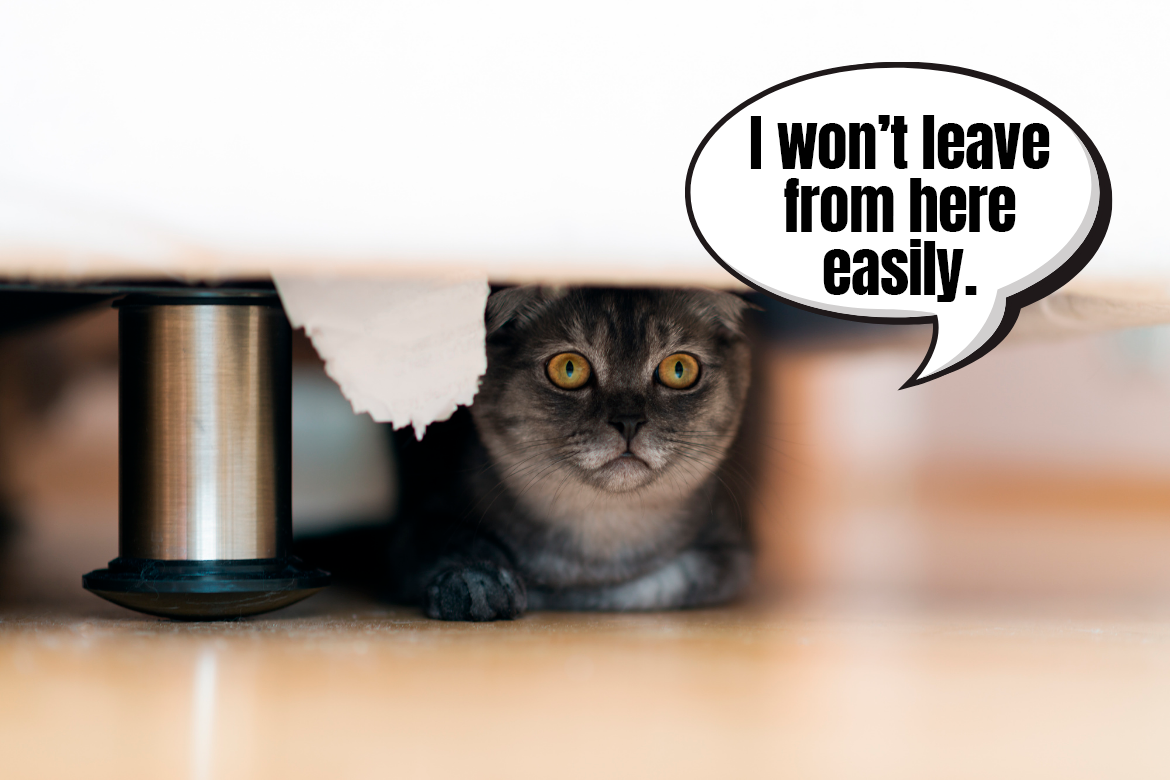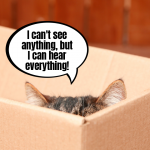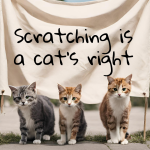New Year’s Eve festivities are usually that “let’s have fun till the crack of dawn” kind of party, with fireworks, champagne, great music and celebration with close friends and family as an end-of-year staple. However, for our furry companions, New Year’s Day is not the best time of the season – disoriented and stressed by the noises and fireworks, they’d rather curl up on your lap or hide under the couch for the entire evening and night. Are you staying home this year, with your kitties, fabCat style? Find out how to keep your cat happy, safe and calm while the fireworks keep popping outside.
Fireworks are not a cat’s friend
Loud noises, pops and bangs, lights that keep showing up in the sky – New Year’s Eve night might have your kitty running in the search for the quietest spot in your house. There are so many stories of cat owners going to the emergency vet clinic because of their cat being terrified and acting out of the ordinary or worse, getting into an accident at home trying to find a safe spot. Whether your kitty is like the cat-Terminator, not afraid of anything, or a quiet and timid creature, watching them closely and reacting to any signs of distress is key, especially on New Year’s Eve. It’s the one day you don’t want your furry friends to stay alone for the evening.
How do you know if the cat is stressed?
There’s no one, perfect description of cat’s behaviour on New Year’s Eve – while some will be completely fine, minding their own business or even watching fireworks from the window sill, others will go looking for a safe spot. They might hide under the couch or the bed, show some health issues (with vomiting, diarrhoea or a hunger strike), or even get so stressed they become aggressive and hyperactive.
Some other, typical signs of cat’s stress include panting, raised heart beat, dilated pupils, ears flattened and rotated backwards, drooling or laying close to the ground, almost crawling. Cats can also get aggressive, growling, whirring, hissing, scratching, attacking other animals or even you, their favourite hooman. The best option is to give your kitty some space, creating hideaways and quiet spots as well as closing and covering all your windows to reduce the noise and visual effects. Remember that cat’s hearing is far more sensitive and the time around New Year’s Eve (as some people get crazy with fireworks a few days before and after December 31st) will be disrupting your cat’s natural daily rhythm. Will those helpful measures be enough?
How to help your kitty on New Year’s Eve?
If cats could talk, on New Year’s Eve they’d probably tell us “please, stop the fireworks”. It’s actually one of the biggest arguments used by people who are advocating for all animals’ safety and well-being. If you’ve ever spent the New Year’s Eve evening with your pets, you’ll know how they may react to the noises with being very stressed and overwhelmed. And there will obviously be some pets that couldn’t care less, but most of them will show some level of stress and fear. Is it really worth it to risk an emergency vet visit when your cat starts projectile vomiting or hurts its paw, running scared from the favourite cat tower by the window? From our perspective it’s much more rewarding to celebrate the New Year with your furry friends and a glass of champagne (with fluff stuck to the glass, obviously!). We are fully aware that even if you, lovely fabCats, decide not to use fireworks, there will be some people around who decide otherwise. What can you do to ease your cat’s stress that evening?
First of all: don’t leave your cat alone. Many people this year are deciding to stay at home, due to the pandemic, but even in “normal” circumstances it’s worth making sure that your cat won’t be alone during the night on New Year’s Eve. You shouldn’t pet and cuddle your kitties against their will – if they’re not expecting you to be that close and choosing to go on your lap, give them space and let them hide wherever they want. New Year’s Das might be the only time they can actually use their darkest and most secluded hiding spots. Allow them to go into your wardrobe or leave a cardboard with their favourite blanket inside – our MIA cardboard house would be perfect for that. You can even cover it with a blanket on the outside to reduce the sounds and slightly block one of the entrances for a cosier and darker cat den. We know cases of cats who are the “no-cuddles-allowed” type of cat all year, but on New Year’s Eve they come up to their hoomans looking for comfort. If your kitties are like that, our dear fabCats, be available to them – let’s show the fluffers that they have our fullest emotional support.
Second of all: prepare the house. This might be the easiest and the most effective task you can do to lower your cat’s stress on New Year’s Eve. Close all the windows fully, roll down the blinds, build up some positive vibes and turn on the music or the tv to minimise the sounds from the outside. Try to act normal and observe your cat, but most of all, remember their daily routine – have fun, play, give out treats and share some champagne. After all, it’s time to celebrate!
MIA Cardboard Playhouse – An Effective Way To Reduce Stress In Cats.
Finally: observe. If your experience tells you that your cat doesn’t like loud noises, tends to get scared or is a senior, New Year’s Eve won’t be easy for them. Prepare in advance, both by observing your cat and working with them – you could ask a cat behaviourist or a vet for help well in advance, as well as try out artificial cat pheromones which will calm the kitty down. Even better, if your fluffer likes any kitty herbs (catnip, valerian, silver vine), you can give them some to help with the nerves.
Profession: Cat Behaviorist.
When your cat needs vet assistance
Giving cats light sedatives to calm them down during days like New Year’s Eve was still acceptable and recommended as recently as a few years ago. However, behaviourists and veterinarians today say that it’s not actually that good of a solution and it’s better not to use drugs unless necessary – never use anything without consulting it with the vet and avoid, at all cost, using sedatives made for dogs or people when treating your cat. It’s worth mentioning that drugs based on natural ingredients are not the same as some tranquilizers and blockers that would make your cat seem calm, but actually not allow him to move while still experiencing all the stress. They can make things even worse, as the cat will be aware of everything but unable to move and thus even more terrified, which in turn may impact their behaviour and health.
And now, to finish things off, we turn the keyboard to you, our fabCats. Are your kitties afraid of fireworks, or maybe (like a cat-Terminator) stay totally calm and neutral to the sounds from the outside? If you’re planning to spend New Year’s Eve at home this year, with your kitties, let us know if you have any great ideas to kill the time and have fun with furies! Which meow hits from the “best of” playlist you’ll be listening to all night?




